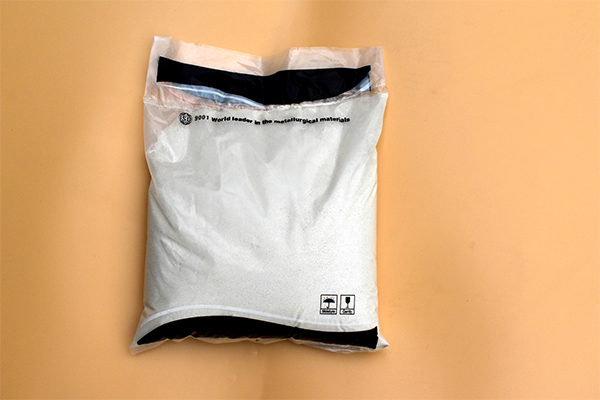Aluminum Smelter Refining Agent is one of the common solvent products, mainly white powder or granules, which are prepared by a variety of inorganic salts according to a certain proportion.
When smelting aluminum products, adding an appropriate amount of refining agent can effectively remove hydrogen and floating oxide slag contained in the aluminum liquid. Mainly because the refining agent is easily decomposed at high temperature, especially the gas produced is prone to chemical reactions, and the strong adsorption capacity of slag inclusions can allow hydrogen to escape from the melt, so it can play a significant role in cleaning slag effect. It is a good choice for enterprises with high requirements for smelting pure aluminum.
The method of using the Aluminum Smelter Refining Agent is relatively simple. Sprinkle it on the liquid surface, quickly press it into the aluminum liquid, mix it well and let it stand for slag removal.
In the process of use, you can use a jet machine, and the effect of spraying it with inert gas will be better. The dosage is about 0.3% of the weight of the molten aluminum. If the purity of the molten aluminum is relatively high, please add more refining agent.

There are many kinds of aluminum alloy melt refining fluxes used in aluminum alloy smelting, which can be divided into two categories: covering agents (fluxes that prevent melt oxidation and inhalation) and refining agents (gas removal of gases and inclusions of inclusions). kind. Covering agents are different from refining agents.
Any flux used in the aluminum alloy smelting process must meet the following conditions.
1. The melting point should be lower than the melting temperature of the aluminum alloy.
2. The specific gravity should be less than that of the aluminum alloy.
3. It can adsorb and dissolve the inclusions in the melt and remove the gas in the melt.
4. It should not react chemically with metal and furnace lining. If it works with metal, it should only produce inert gas that is insoluble in metal, and the flux should be insoluble in molten metal.
5. Low hygroscopicity and low evaporation pressure.
6. It should not contain or produce harmful impurities and gases.
7. It should have proper viscosity and fluidity.
8, easy to manufacture: cheap.

